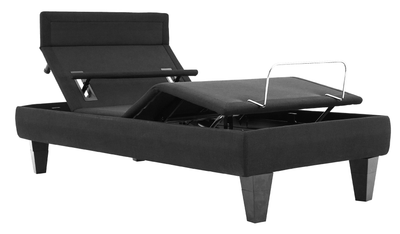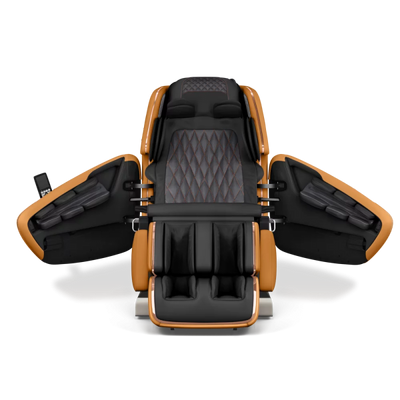Memory Foam Mattresses: Pros and Cons

Sinking into bed after a long day feels amazing, especially when your mattress seems to mold perfectly to your body. That slow, cushiony hug? That’s memory foam doing its thing. Loved for its pressure relief and cozy feel, memory foam mattresses have become a favorite in bedrooms everywhere.
But are they as dreamy as they seem? In this blog, we’ll break down the real pros and cons of memory foam mattresses, so you can decide if they’re the right fit for your sleep style—or if you might want to keep shopping.
What Is a Memory Foam Mattress?

Memory foam was originally invented by NASA in the 1960s. Today, it’s found in millions of bedrooms. It’s a type of polyurethane foam that reacts to body heat and pressure, softening just enough to form around you while still providing support.
There are a few kinds to know:
-
Traditional memory foam: Classic slow response and deep contouring.
-
Gel-infused memory foam: Designed to feel cooler.
-
Plant-based memory foam: Swaps some petrochemicals for more eco-friendly ingredients.
The Pros of Memory Foam Mattresses
Pressure Relief
This is where the memory foam mattress truly shines. It cushions pressure points like your hips, shoulders, and back. Side sleepers often love this because it helps reduce that “numb arm” feeling in the morning. It’s also helpful for people dealing with chronic pain or joint issues.
Spinal Alignment
Memory foam supports the natural curve of your spine. When it’s the right firmness, it can help reduce back pain and improve sleep posture.
Great for Couples
If you share a bed, memory foam helps minimize motion transfer. That means if your partner tosses and turns, you’re less likely to feel it.
Hypoallergenic
Most of the best memory foam mattresses are naturally resistant to dust mites and allergens. That’s good news for people with allergies or asthma.
Quiet
No creaking springs here. Memory foam is silent, which is great for light sleepers.
The Cons of Memory Foam Mattresses
Heat Retention
Traditional memory foam traps heat. Some people feel uncomfortably warm, especially in hot weather. However, newer models, such as gel memory foam mattresses and open-cell designs, can help, but not all foams sleep cool.
Lack of Bounce
If you like a mattress with some spring or responsiveness, memory foam may feel too slow. It can also make moving around or switching positions harder.
Off-Gassing Smell
New memory foam mattresses can emit a chemical odor for the first few days. This is called off-gassing. It’s usually harmless but can bother people who are sensitive to odors.
Heavier and Harder to Move
Memory foam is dense. That makes mattresses heavier and harder to lift or rotate. If you live alone or move often, this might be something to consider.
Who Might Love Memory Foam?

Memory foam mattresses are a solid choice for a few types of sleepers:
-
Side sleepers: The contouring helps relieve pressure points on shoulders and hips.
-
People with chronic pain, especially those dealing with arthritis or back pain.
-
Couples: Great at isolating motion so one person doesn’t wake the other.
-
People with allergies are less likely to trigger reactions from dust or dander.
Who Might Want to Skip It?
-
Hot sleepers: Even with cooling layers, some foams still trap warmth.
-
Combo sleepers: If you toss and turn frequently, the slow response may feel restrictive.
-
People who prefer bounce: If you like the feel of a spring mattress or latex, memory foam might feel too soft or slow.
Final Thoughts
Memory foam mattresses have a lot to offer. They’re soft, supportive, and great for relieving pressure. For the right sleeper, especially side sleepers, couples, and those with allergies, they can be a solid choice. But they’re not for everyone. If you sleep hot or need more bounce, you may want to explore other options. Ultimately, it comes down to how you prefer your bed to feel. The best mattress is the one that helps you sleep more deeply, wake up happier, and feel good every morning.
Want to Try Memory Foam for Yourself?
Now that you know the real pros and cons of memory foam mattresses, the next step is to try one that fits your sleep needs. Whether you're after pressure relief, motion isolation, or spine support, memory foam is your perfect match.
Explore premium memory foam mattresses for sale and more at Mattress Lux, offering a wide selection of sleep solutions, trusted comfort and quality.
FAQs
How long do memory foam mattresses last?
Memory foam mattresses usually last between 8 to 10 years. High-quality foam and proper care, such as rotating it regularly and using a suitable base, can help it last longer.
How to clean a memory foam mattress?
Vacuum the mattress to remove dust and dirt. For stains, use a mild soap mixed with water and gently blot the area with a clean cloth. Avoid soaking it, and let it air dry completely before using it again.
Are memory foam mattresses good?
Yes, memory foam mattresses are good for pressure relief and body support. They mold to your shape, which can help reduce pain and improve sleep, especially for side and back sleepers.
Can you flip a memory foam mattress?
No, most memory foam mattresses shouldn’t be flipped because they’re designed with specific layers on top. Instead, you can rotate it every few months to keep it wearing evenly.
Do memory foam mattresses need a box spring?
No, a box spring isn’t necessary. Memory foam mattresses work best on a solid platform, slatted base (with close-set slats), or an adjustable base for proper support.







Leave a comment